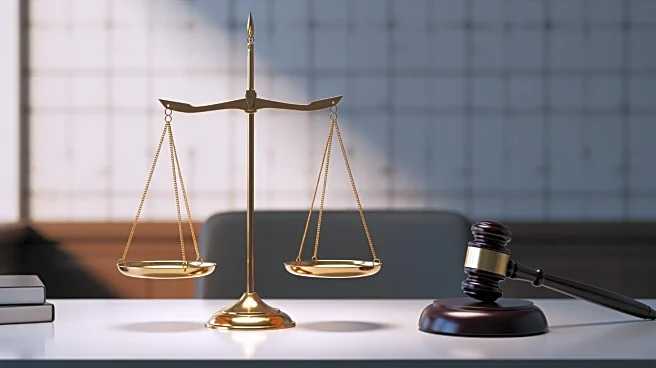What's Happening?
Charlie Javice, convicted of defrauding JPMorgan Chase & Co., has accused the bank of hypocrisy for objecting to paying her legal bills. Javice, along with co-defendant Olivier Amar, amassed $115 million
in defense costs, which JPMorgan claims were excessive. The bank has requested a Delaware court to end its obligation to cover these costs, arguing that Javice and Amar treated the arrangement as a 'blank check.' Javice's legal team, Quinn Emanuel Urquhart & Sullivan, countered by highlighting JPMorgan's own extensive legal expenditures, including hiring over 50 lawyers from six firms. The dispute stems from a civil lawsuit and criminal case where Javice and Amar were found guilty of falsifying user data to mislead JPMorgan into acquiring their student-finance site, Frank, for $175 million. Javice was sentenced to seven years in prison, while Amar received five years and eight months.
Why It's Important?
The legal battle between Charlie Javice and JPMorgan underscores the complexities and financial implications of corporate fraud cases. The case highlights the significant legal costs associated with defending against fraud charges, which can impact both the defendants and the corporations involved. For JPMorgan, the dispute over legal fees reflects broader concerns about financial accountability and the management of legal expenses in high-profile cases. The outcome of this case could influence how future corporate mergers and acquisitions address legal cost coverage, potentially affecting corporate governance and financial strategies. Additionally, the case serves as a cautionary tale for startups and investors about the importance of transparency and due diligence in business transactions.
What's Next?
The Delaware court's decision on whether JPMorgan must continue covering Javice's legal fees could set a precedent for similar cases involving corporate fraud and legal cost disputes. If the court sides with Javice, it may reinforce the obligations of corporations to honor merger agreements, even in cases of fraud. Conversely, a ruling in favor of JPMorgan could encourage companies to reassess their legal cost coverage policies in merger agreements. The ongoing legal proceedings may also prompt discussions among legal experts and corporate leaders about the balance between legal accountability and financial prudence in fraud cases. Javice's appeal process, with representation from high-profile attorney Alexandra Shapiro, could further influence the legal landscape surrounding corporate fraud.
Beyond the Headlines
The case raises ethical questions about the responsibilities of corporations in managing legal disputes and the potential for abuse of legal cost arrangements. It also highlights the challenges faced by individuals in securing adequate legal representation when facing significant financial and legal hurdles. The broader implications of this case may extend to discussions about corporate ethics, transparency, and the role of legal systems in addressing corporate misconduct. As the case unfolds, it may contribute to ongoing debates about the effectiveness of legal frameworks in deterring fraud and protecting stakeholders.










